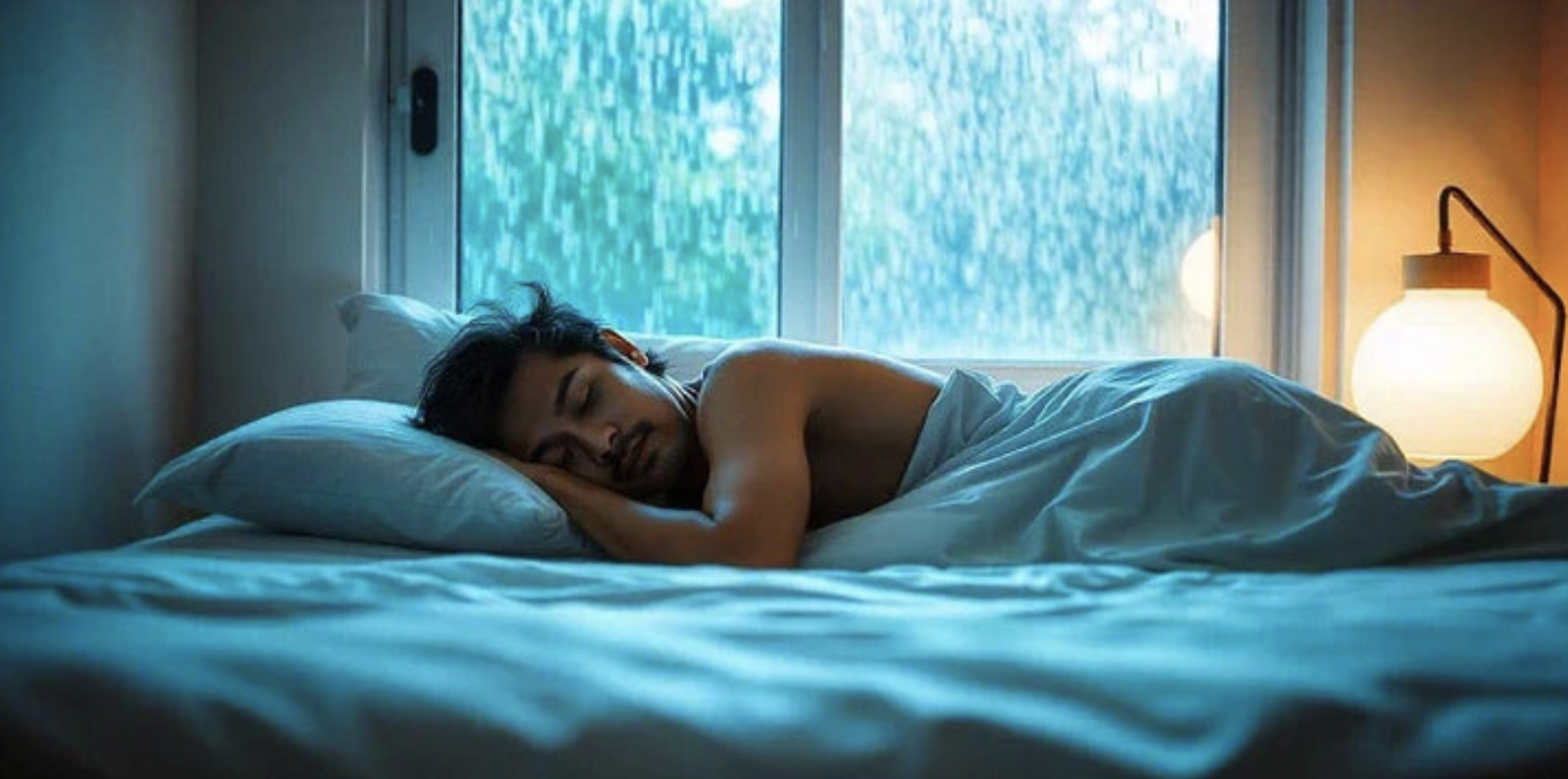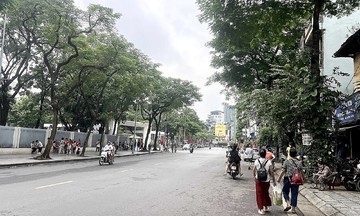Rain often brings high humidity and a cool feeling – factors that strongly influence sleep. The sound of rain is one of the most common and pleasant auditory stimuli (ASMR), helping people fall asleep naturally. Therefore, rain makes many people feel drowsy and postpone other social activities.
The sound of rain is a form of "white noise".
According to Dr. Sue Peacock, a leading health psychologist and sleep researcher in the UK, the sound of rain is a form of "white noise" (when it's heavy) or "pink noise" (when it's steady). "These types of sounds mask other noises within our normal hearing range, which is especially helpful for sleep," she says.
Research from Harvard Medical School and Cornell University shows that white noise helps adults fall asleep 38% faster and enjoy better sleep quality. Pink noise is theoretically softer and easier to listen to. "This is why the sound of rain can lull us to sleep," Dr. Peacock says.
Besides rain, other forms of white noise include the static from a television, the whir of a fan, a vacuum cleaner, or a hairdryer. However, many people can't sleep with artificial sounds but easily drift off when it's actually raining.
Lack of sunlight contributes to sleepiness.
When it rains, dark clouds gather, making the sky darker. The brain can misinterpret this as a signal that it's time to sleep.
Research from the University of Göttingen shows that when it's dark, the brain's pineal gland releases the hormone melatonin. This is a natural sleep aid, signaling the body to rest. In summer, sunlight prevents the pineal gland from releasing melatonin, making us tend to sleep less.
 |
Lack of sunlight and lower temperatures make people tend to feel sleepy when it rains. Illustrative photo: Sleepsia |
Lack of sunlight and lower temperatures make people tend to feel sleepy when it rains. Illustrative photo: Sleepsia
The sound of rain is perceived as non-threatening.
Another hormone that affects sleep is adrenaline, which is related to the stress response.
"Research from Sangmyung University shows that the brain perceives the sound of rain as non-threatening," Dr. Peacock explains. This rhythmic, steady sound doesn't trigger the "fight or flight" response, helping to keep adrenaline levels stable and conducive to sleep.
The meditative quality of rain sounds promotes relaxation.
The repetitive sound of rain also creates a sense of relaxation similar to meditation. "The sound of rain activates alpha waves in the brain, which helps to relax an overstimulated brain, making it easier to fall asleep," the psychologist says.
Increased humidity can induce fatigue.
When it rains, the humidity in the air increases. The body has to work harder to regulate body temperature, such as by bringing blood to the skin's surface for cooling. This process consumes energy, causing fatigue and drowsiness.
Rain masks other noises, promoting better sleep.
This is the main reason why rain causes sleepiness. For those who live in cities or noisy areas, the sound of rain can drown out distracting sounds.
"Even when we sleep, our brains continue to process sounds. The slamming of car doors, barking dogs, or loud conversations can stimulate the brain and disrupt sleep. The sound of rain can mask these noises," Dr. Peacock says.
Minh Phuong (According to Woman&home's)












